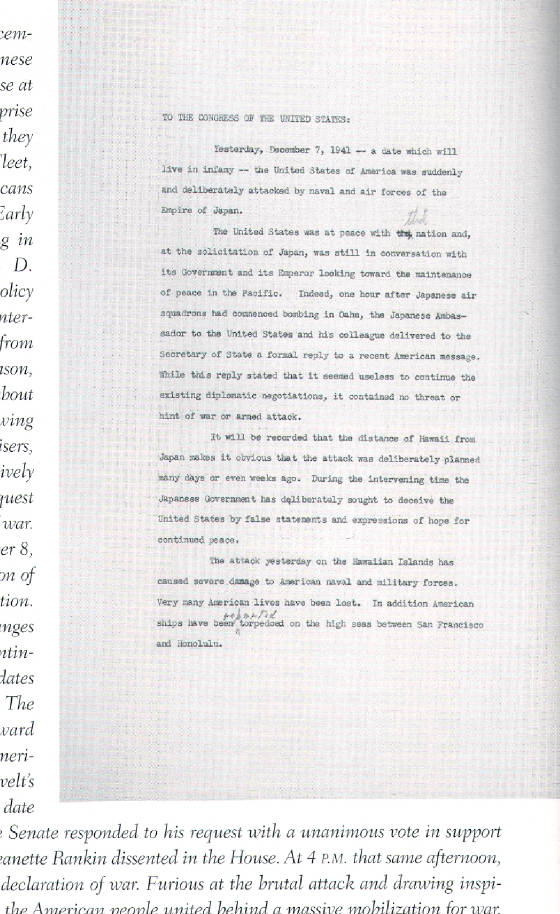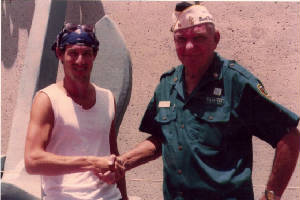|
|
Scores of Japanese planes made a surprise attack (in two waves) on the military base at Pearl Harbor, Hawaii on December 7, 1941. Over 2,000 Americans were killed and a significant portion of the naval fleet protecting the Pacific was crippled, with one of the only remarkable saving graces being that aircraft carriers were not there, that the drydock and repair facilities remained intact, and oil reserves were not destroyed. The following day, President Franklin Roosevelt captured the anger of the nation with his memorable request that Congress declare war, saying actually that since the attack, "a state of war has existed between the United States and Japan." He remarked that it was "...a date which will live in infamy." He was right.
Meeting Warren Verhoff during my visit to Pearl Harbor more than 20 years ago was a lesson I'll never forget. He
spent a good deal of time with me, patiently speaking in a muffled remembrance-filled splashing of bitter memories, made seemingly
so much harsher by his repeating the tale for yet another visitor. As a docent, Verhoff brought life to the story of
that day far beyond anything I could have imagined. It could be that my encounter with him shaped my desire as a teacher
to emphasize primary sources in presentations and long-term projects so that a level of authenticity could be felt that seemingly
was lacking in the accounts of events I was showing to my students.
Click Here for a National Park Service Website that mentions Mr. Verhoff's story.
|
|||||||||||||||||||||||||


